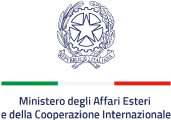Local Employment and Economic Development (LEED Programme)
Culture, tourism and local development: New strategies for Italian heritage cities in the post-pandemic scenario
In the recovery, cities and regions could consider cultural and creative sectors (CCS) as well as cultural participation as a driver of both economic and social impact in its own right and throughout the economy
|
This project is developed by the OECD Local Employment and Economic Development (LEED) Programme and the OECD Trento Centre and is supported by the Italian Ministry of Foreign Affairs and International Cooperation and the Italian Ministry of Culture
In the recovery, cities and regions could consider cultural and creative sectors (CCS) as well as cultural participation as a driver of both economic and social impact in its own right and throughout the economy. COVID-19 is providing many communities, whether metropolitan areas or rural regions, an opportunity to reconsider their growth models to be more inclusive and sustainable. In many cities and regions, specialisations in the cultural and creative sectors are evolving, and being used to tackle competitive and societal challenges from new angles, favouring resilience, skills creation and prosocial behavioural changes. Recovery strategies can capitalise on the role of culture to help build local capabilities, address exclusion and contribute to well-being and health. There is also an opportunity for dense metropolitan areas and remote regions alike to reconsider growth models moving away from large-scale tourism towards more sustainable cultural and creative tourism fostering cross-innovation between CCS and other sectors. The contribution of culture can also be important in other areas of local development, from rebuilding public trust to contributing to post-pandemic urban design adapted to social distancing rules.
This project supports Italian Heritage Cities, selected or nominated as Italian Capital of Culture, in identifying innovative ways to maximise the economic and social value of cultural heritage, fostering the emergence of new sectors, such as creative tourism, in light of international experiences. Participating cities: Bari, Bergamo, Bitonto, Casale Monferrato, L'Aquila, Pieve di Soligo, Reggio Emilia, Taranto, Trapani, Trento, Verbania and Volterra.
Three thematic webinars were organised in 2021 on topic identified as priorities by participating cities and feeding into a “How to” Strategic Note. The webinars were an opportunity to share and learn from innovative practices in Italy and other OECD countries in order to develop practical solutions to common challenges. |
|
|
Webinars calendarWebinar #3 - 26 November 2021 - REPLAY AVAILABLE Heritage, responsible cultural tourism, and sustainable development Webinar #2 - 29 October 2021 - REPLAY AVAILABLE Heritage as a driver for new local creative entrepreneurship Webinar #1 - 26 May 2021 - REPLAY AVAILABLE Cultural heritage and social cohesion: how to make the local community more cohesive and inclusive |
||
Webinars
Webinar #3 |
|
||
|
What we discussed Cultural and creative sectors (CCS) and tourism sector are among the most affected by the COVID-19 pandemic related crisis. In the recovery, there is an opportunity for dense metropolitan areas and remote regions alike to reconsider growth models moving away from large-scale tourism towards models fostering cross-innovation between CCS and other sectors including traditional manufacturing and services that can be incorporated into creative tourism programmes. These new models of creative tourism can deliver considerable added value, increase tourism demand and diversify tourism supply. Drawing on examples of good practice from Italy and other OECD countries, this webinar distilled the key ingredients of local action to foster cultural and creative tourism in the context of the recovery.
Contact: culture@oecd.org |
||
Webinar #2 |
|
||
|
What we discussed Local cultural and creative entrepreneurship can be the catalyst of new models of economic and social value creation. It can contribute to increasing levels of regional innovation and productivity, through new product design, new production techniques, new business models, innovative ways of reaching audiences and consumers, and emerging forms of co-production. Cross-sectoral linkages can spread innovation into the wider economy. Drawing on examples of good practice from Italy and other OECD countries, this webinar distilled the key ingredients of local action to foster heritage-led entrepreneurship and innovation in the context of the recovery.
Contact: culture@oecd.org |
||
Webinar #1 |
|
||
|
What we discussed Culture, and cultural heritage in particular, can play an important role in ensuring inclusive and cohesive societies. Culture strengthens local identities and creates a sense of belonging. The promotion of cultural participation and ensuring diversity of the cultural offer can help mitigate factors leading to social and economic marginalization. Different forms of creativity deliver social values as they help increase human resilience. Creative skills and arts education can also improve learning as well as develop freedom of expression. Moreover, there is strong evidence on the links between cultural participation and people’s mental well-being and health, providing opportunities to capitalize on the role of culture in the prevention and treatment of illness across the lifespan. Building cultural capabilities and promoting cultural participation is therefore a precondition for more cohesive and inclusive societies. Drawing on examples of good practice from Italy and other OECD countries this webinar aimed to distill the key ingredients of local action aimed at maximizing the social cohesion role of cultural heritage in the context of the recovery. Download the agenda (IT version) Contact: culture@oecd.org |
||
Project Partners
 |
 |
Related Documents